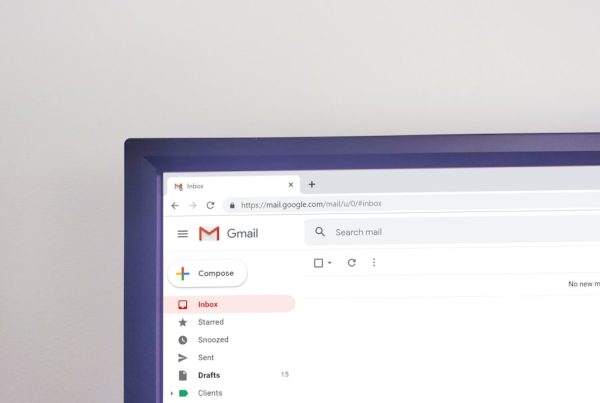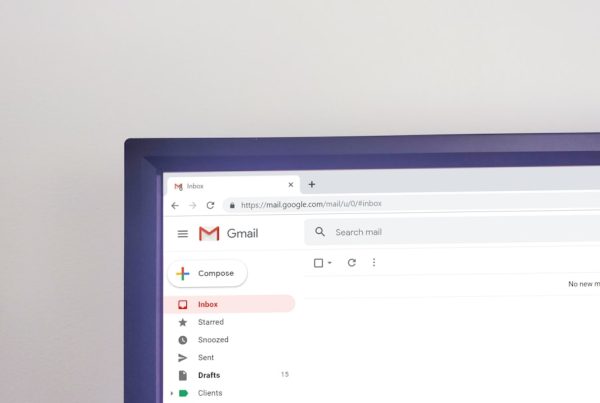In today’s digital age, the prevalence of online scams has reached alarming levels, with cybercriminals constantly devising new methods to deceive unsuspecting individuals. One of the most common forms of these scams involves fraudulent emails that impersonate reputable companies, such as McAfee, a well-known cybersecurity firm. These scam emails often aim to exploit your trust and trick you into providing sensitive information or downloading malicious software.
As a recipient, it is crucial to be aware of these scams and understand how to protect yourself from falling victim to them. The rise of cyber threats has made it essential for individuals to stay informed about the tactics used by scammers. McAfee scam emails can appear legitimate at first glance, often featuring official logos and professional language.
However, a closer inspection may reveal inconsistencies that can help you identify them as fraudulent. By understanding the nature of these scams and recognizing their signs, you can safeguard your personal information and maintain your online security.
Key Takeaways
- McAfee scam emails are fraudulent emails that impersonate the legitimate McAfee company in an attempt to deceive recipients into providing personal information or downloading malware.
- To identify McAfee scam emails, look for misspelled email addresses, generic greetings, urgent language, and requests for personal information or payment.
- Common tactics used in McAfee scam emails include fake invoices, false security alerts, and promises of free or discounted McAfee products.
- Falling for McAfee scam emails can result in identity theft, financial loss, and compromised computer security.
- To protect yourself from McAfee scam emails, verify the sender’s email address, avoid clicking on suspicious links or attachments, and keep your antivirus software up to date.
How to Identify McAfee Scam Email
Verify the Sender’s Email Address
One of the first things you should look for is the sender’s email address. Scammers often use addresses that closely resemble official ones but contain slight variations, such as misspellings or unusual domain names. For instance, an email claiming to be from McAfee might come from an address like “support@mcafee-secure.com” instead of the official “support@mcafee.com.” Always verify the sender’s address before taking any action.
Be Cautious of the Tone and Content
Another red flag to watch for is the tone and content of the email. Legitimate companies typically maintain a professional tone and avoid using urgent language that pressures you to act quickly. If you receive an email that contains alarming messages about your account being compromised or threats of immediate action, it is likely a scam.
Avoid Generic Greetings
Additionally, be cautious of emails that contain generic greetings like “Dear Customer” instead of addressing you by name. Scammers often use these tactics to cast a wide net, hoping to catch as many victims as possible.
Common Tactics Used in McAfee Scam Email

Scammers employ various tactics to make their fraudulent emails appear convincing and to manipulate recipients into taking action. One common tactic is the use of phishing links that direct you to fake websites designed to mimic legitimate ones. These links may be embedded in buttons or highlighted text, urging you to click for account verification or to download important updates.
Once you click on these links, you may unknowingly provide your personal information or download malware onto your device. Another prevalent tactic is the use of attachments that claim to contain important documents or updates related to your McAfee subscription. These attachments may be disguised as PDFs or Word documents but can contain harmful software that compromises your device’s security.
It is essential to exercise caution when opening attachments from unknown sources, even if they appear to come from a trusted company like McAfee. Always verify the legitimacy of the email before downloading any files.
Consequences of Falling for McAfee Scam Email
| Consequences | Description |
|---|---|
| Financial Loss | Victims may lose money by paying for fake McAfee products or services. |
| Identity Theft | Scammers may steal personal information leading to identity theft. |
| Malware Infection | Clicking on links in the scam email may lead to malware infections on the victim’s device. |
| Data Breach | Scammers may gain access to sensitive data if victims provide personal information. |
Falling victim to a McAfee scam email can have serious consequences that extend beyond immediate financial loss. If you inadvertently provide your personal information, such as credit card details or login credentials, scammers can use this data for identity theft or unauthorized transactions. This can lead to significant financial repercussions and may take considerable time and effort to resolve.
Moreover, downloading malware from a scam email can compromise your device’s security, allowing cybercriminals to access sensitive information stored on your computer or network. This breach can result in further financial loss, data theft, and even damage to your reputation if sensitive information is leaked. The emotional toll of falling victim to such scams can also be significant, leading to feelings of vulnerability and distrust in online transactions.
Tips to Protect Yourself from McAfee Scam Email
To protect yourself from McAfee scam emails, it is essential to adopt proactive measures that enhance your online security. First and foremost, always keep your software up to date. Regularly updating your operating system and antivirus software can help protect against known vulnerabilities that scammers may exploit.
Additionally, consider using a reputable email filtering service that can help identify and block potential phishing attempts before they reach your inbox. Another effective strategy is to educate yourself about common phishing tactics and stay informed about the latest scams targeting consumers. Familiarizing yourself with the signs of fraudulent emails will empower you to recognize potential threats more easily.
Furthermore, consider enabling two-factor authentication on your accounts whenever possible. This added layer of security can help protect your accounts even if your login credentials are compromised.
Reporting McAfee Scam Email

Protecting Others from McAfee Scam Emails
If you encounter a McAfee scam email, it is crucial to report it promptly to help protect others from falling victim to similar scams. Most reputable companies, including McAfee, have dedicated channels for reporting phishing attempts and fraudulent communications.
Reporting the Scam to McAfee
You can forward the suspicious email to their official support address or use their online reporting tools if available. This will help McAfee take necessary actions to prevent further scams and protect their customers.
Notifying Your Email Provider
In addition to reporting the email to McAfee, consider notifying your email provider about the scam attempt. Many email services have mechanisms in place for reporting phishing emails, which can help improve their filtering systems and protect other users from similar threats.
Contributing to a Safer Online Environment
By taking these steps, you contribute to a safer online environment for everyone. Your prompt action can help prevent others from falling victim to similar scams and make the internet a more secure place.
Legal Actions Against McAfee Scam Email Perpetrators
Legal actions against perpetrators of McAfee scam emails can vary depending on jurisdiction and the specific circumstances surrounding each case. In many instances, law enforcement agencies work in collaboration with cybersecurity firms and organizations dedicated to combating cybercrime. These collaborations aim to track down scammers and hold them accountable for their actions.
While individual victims may feel powerless against such widespread scams, reporting incidents can lead to larger investigations that target organized crime rings behind these fraudulent activities. In some cases, authorities may issue warnings or advisories about ongoing scams, helping raise awareness among potential victims and reducing the likelihood of further incidents.
Conclusion and Recap of McAfee Scam Email Awareness
In conclusion, awareness of McAfee scam emails is essential in today’s digital landscape where cyber threats are ever-present. By understanding how to identify these fraudulent communications and recognizing common tactics used by scammers, you can better protect yourself from falling victim to their schemes. The consequences of engaging with such scams can be severe, impacting not only your finances but also your emotional well-being.
To safeguard yourself effectively, adopt proactive measures such as keeping software updated, educating yourself about phishing tactics, and reporting suspicious emails promptly. Remember that vigilance is key in maintaining your online security. By staying informed and taking action against these scams, you contribute not only to your safety but also to a broader effort in combating cybercrime in our increasingly interconnected world.
If you’re concerned about the McAfee scam email and looking for more information on how to protect yourself from similar cybersecurity threats, you might find the article on “Critical Infrastructure Security” helpful. It provides insights into various security measures and practices that can enhance your defense against phishing scams and other malicious cyber activities. You can read more about it by visiting Critical Infrastructure Security. This article will equip you with the necessary knowledge to safeguard your personal and professional data.
FAQs
What is the McAfee scam email?
The McAfee scam email is a fraudulent email that impersonates McAfee, a well-known cybersecurity company, in an attempt to deceive recipients into providing personal information, clicking on malicious links, or downloading harmful attachments.
How can I identify a McAfee scam email?
McAfee scam emails often contain spelling and grammatical errors, use generic greetings, and may request sensitive information such as passwords or credit card details. They may also contain suspicious links or attachments.
What should I do if I receive a McAfee scam email?
If you receive a suspected McAfee scam email, do not click on any links or download any attachments. Instead, report the email to McAfee’s official website and delete it from your inbox.
How can I protect myself from falling victim to a McAfee scam email?
To protect yourself from falling victim to a McAfee scam email, be cautious of unsolicited emails, verify the sender’s email address, and never provide personal information or click on suspicious links. Additionally, ensure that your antivirus software is up to date to help detect and prevent such scams.



